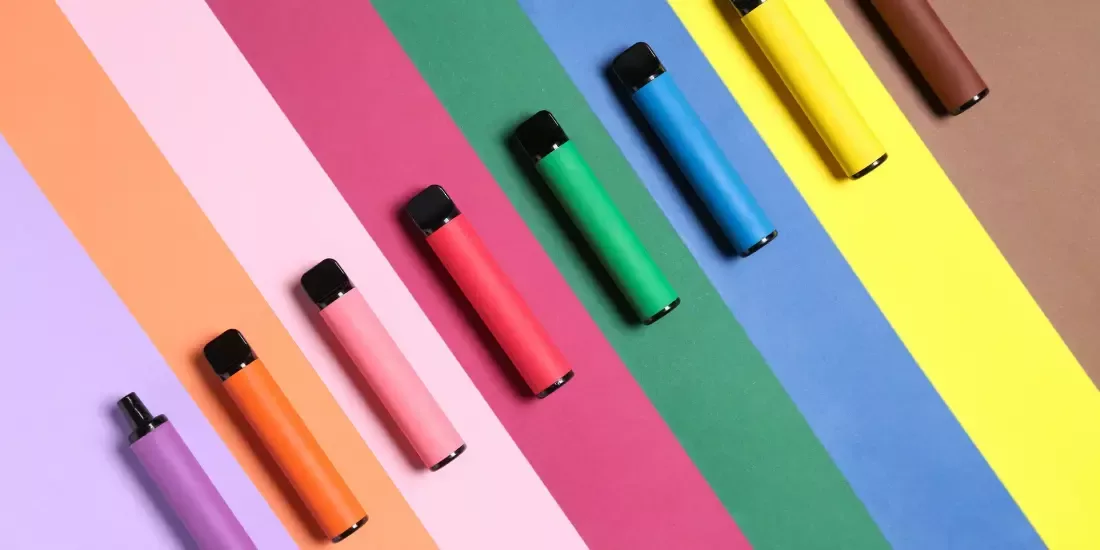UK to Ban Disposable Vapes

While smoking is becoming increasingly less attractive to members of the public, vaping has filled the gap left in the market. Unfortunately, these devices, especially disposable ones, have been specifically targeted to under 18s. Featuring bright, colourful packaging and sweet flavours, there’s a risk that children will take up vaping and become addicted to these nicotine-containing devices.
Now, thanks to calls from local councils, paediatricians and public waste campaigners, the UK Government is looking to ban the selling of disposable vapes. Although the main concern is how teenagers are becoming addicted, there’s also a massive environmental issue with these devices once they are used up. They can’t be recycled and are littering the land, being incredibly expensive and difficult to deal with.
It’s estimated that 5 million single-use vapes are thrown away in the UK every single week. Without proper recycling schemes in place, these end up in landfill or simply in the environment. There is enough lithium in these disposable vapes to create 5,000 electric car batteries a year. Fortunately, there are places that can recycle vapes – everyone just needs to be aware of them.
A lot of criticism has been placed on the government for allowing vapes to be sold with sweet flavours, such as banana milkshake and jelly babies. These products contain 2% nicotine, which is the highest legally permitted amount. The main fear was that children would see these products as desirable and then become addicted to nicotine. Parents might even encourage their children to use vapes as they’re viewed as a “safer” alternative to smoking.
In terms of regulation, the UK is being slow to act. Several countries have already banned disposable vapes or limited how they are marketed. France is planning to ban them, while Australia has banned them without a prescription. New Zealand has banned most of them and limited how the marketing appeals to children. Britain is not looking to ban all vaping products without a prescription because it is being offered to adults as a safer alternative to smoking.
“If you smoke, vaping is much safer; if you don’t smoke, don’t vape, and marketing to children is utterly unacceptable.”
Professor Chris Whitty
In terms of the environment, disposable vapes are dangerous because they pose a fire risk when crushed. According to a recent YouGov poll, 33% of 16–18 year olds who vape throw their empties in the bin. This causes a huge potential for fires along the waste chain, but retailers and distributors should do more to highlight how these devices can be recycled.
While calls for proper recycling infrastructure have been coming for a while, it may be too late now that the government will be looking to put a ban in place. Although vapes will still be available as a viable alternative for people looking to give up smoking, children and young adults will not be able to buy these products that are heavily marketed towards them.
Despite support for a ban, there are fears that illegal disposable vape devices will become a much bigger problem. Without legitimate retailers offering recycling points, illegal operators will not offer the same environmental solutions. The illegal vape market is already a big problem in the UK, with potentially harmful devices causing widespread issues.
